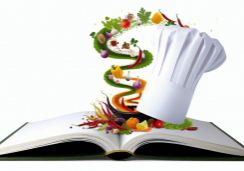Why Opt for Vegan Recipes? Healthy Creation Tips
Embarking on a vegan journey is much like planting a seed in fertile ground; it requires patience, care, and the right ingredients to flourish.
As you explore the landscape of plant-based cuisine, you'll discover that opting for vegan recipes isn't just a trend—it's a sustainable path to nourishing your body with meals that are as kind to the planet as they are to your health. You're making choices that can reduce your carbon footprint, minimize animal suffering, and potentially lead to a lighter, more energized you.
But how can you ensure that your vegan creations are not only healthy but also satisfying and delicious? Stick around as we uncover the secrets to crafting delectable vegan dishes that don't skimp on nutrition or flavor, and learn how to make each meal an opportunity to support your well-being and express culinary creativity.
Assessing Nutritional Balance
To ensure your vegan diet is as beneficial as possible, it's crucial to evaluate the variety and quantity of food groups you're consuming. A balanced diet hinges on incorporating a wide range of whole grains, fruits, vegetables, legumes, nuts, and seeds. These aren't only rich in essential nutrients but also form the foundation of a healthful vegan diet.
You'll want to consider the proportion of macronutrients—carbohydrates, proteins, and fats—in your meals. Whole grains, for instance, are a great source of complex carbohydrates and fiber. They provide the energy your body needs and support a healthy digestive system. Proteins are vital for muscle repair and growth, and you can find them in legumes, soy products, and quinoa. Don't skimp on healthy fats either; they're found in avocados, nuts, and seeds and are necessary for hormone production and nutrient absorption.
Assessing your intake of essential vitamins and minerals ensures nutritional adequacy. Be mindful of vitamin B12, iron, calcium, and omega-3 fatty acids, which might require extra attention in a vegan diet. Regularly review your diet to maintain a balance between whole foods and processed foods. And remember, adequate hydration is key to supporting your overall health and well-being.
Selecting Whole Food Ingredients
An abundance of whole food ingredients should form the cornerstone of your vegan meals, providing a treasure trove of nutrients essential for optimal health. When you're selecting foods for your diet, prioritize plant-based ingredients that are as close to their natural state as possible.
Fresh fruits and vegetables, whole grains, nuts, seeds, and legumes are the building blocks of a nourishing vegan diet. These whole food ingredients aren't only nutrient-dense but also brimming with fiber, vitamins, and minerals that support overall well-being.
Opt for organic and locally sourced products whenever possible to maximize the health benefits and support sustainable practices. You'll also want to sidestep heavily processed and refined foods that often contain hidden sugars, fats, and additives. Instead, choose whole food alternatives that don't compromise on nutrition or taste.
Flavor Enhancement Techniques
While selecting high-quality ingredients is crucial, mastering flavor enhancement techniques can elevate your vegan dishes from good to exceptional. Here's how you can amplify the flavors in your cooking:
- Experiment with Spices: Diverse spices can significantly alter and improve the flavor profile of your dishes. Don't be afraid to try new combinations, as they can bring an unexpected and delightful twist to your meals.
- Incorporate Fresh Herbs: Fresh herbs like basil, cilantro, and parsley add a burst of freshness that dried versions can't match. They not only enhance the taste but also contribute to the visual appeal of your dishes.
- Utilize Nutritional Yeast: For a cheesy flavor without the dairy, nutritional yeast is your go-to ingredient. It's not only tasty but also packed with B-vitamins, adding both flavor and nutrition to your meals.
Remember to balance your flavors by adding acidity, such as a squeeze of lemon juice or a dash of vinegar, which can brighten up the entire dish.
Roasting vegetables is another effective method to deepen their flavors, bringing out their natural sweetness and creating a richer taste experience.
Cooking Methods for Health
Understanding the basics of various cooking methods, such as steaming, boiling, and grilling, can significantly enhance the healthfulness of your vegan meals.
Steaming is a gentle way to cook your plant-based foods, preserving their natural nutrients and flavors without the need for oils. It's ideal for vegetables, allowing them to maintain their vibrant colors and crisp textures.
Boiling can be a healthy option, especially for legumes and grains. It's a simple method that doesn't add extra calories or fat, but be mindful not to overcook to prevent nutrient loss. When preparing healthy vegan recipes, consider using a minimal amount of water and cooking for the shortest time necessary to retain the most nutrients.
Grilling is another method that imbues dishes with a smoky flavor and can reduce the need for heavy sauces or seasonings. It's perfect for plant-based proteins like tofu or tempeh. However, it's important to grill at the proper temperature and avoid charring, which can introduce harmful compounds.
What Are Some Tips for Creating Healthy Vegan Recipes?
When crafting healthy vegan recipes, incorporating a variety of fresh, colorful vegetables is key. Experiment with different seasoning blends and herbs to enhance flavors. Utilize plant-based proteins such as tofu, tempeh, or legumes for added nutrition. Embrace creativity and don’t be afraid to try new ingredient combinations. These are the best vegan recipe tips for success.
Meal Planning Strategies
To maximize the efficiency and nutritional value of your daily meals, it's crucial to develop effective meal planning strategies. By planning your meals in advance, you're not only saving time but also ensuring that you're getting the diverse nutrients that our bodies need to thrive on a vegan diet.
Here's how you can get started:
- Batch Cooking: Allocate a day to prepare meals for the week. This approach allows you to cook once and eat nutritious meals multiple times, saving you precious time on busy days.
- Diverse Ingredients: Incorporate a variety of plant-based proteins such as lentils, beans, tofu, and tempeh to keep your meals exciting and nutritionally balanced. Don't forget to add a rainbow of vegetables for essential vitamins and minerals.
- Pantry Staples: Keep your pantry stocked with essential vegan ingredients like whole grains, nuts, seeds, and nutritional yeast. This ensures you have the basics to whip up a meal even on the busiest of days.
Addressing Common Challenges
Having established the fundamental meal planning strategies for a vegan diet, let's now tackle the common challenges you might face, such as finding time to prepare nutritious meals and sifting through the myriad of myths surrounding veganism.
Going vegan doesn't mean you must spend hours in the kitchen. You can incorporate balanced vegan meals into your busy schedule by prepping in bulk or choosing simple recipes with minimal ingredients. Utilize weekends or evenings to prepare and freeze components for quick assembly during the week.
It's crucial to navigate misinformation about vegan diets effectively. No need to eliminate whole food groups or adhere exclusively to a raw diet—variety is key. Ensure you're getting all necessary nutrients by including a range of fruits, vegetables, grains, legumes, nuts, and seeds. Meat substitutes can be handy, but don't rely on them exclusively. They should complement, not replace, the consumption of whole foods.
For those with dietary restrictions or health issues, consult a nutritionist to tailor your diet correctly. Kids with special needs can thrive on a well-planned vegan diet that's rich in essential nutrients. Keep meals interesting by experimenting with international cuisines and spices, and don't be afraid to try new plant-based alternatives.
With strategic meal planning and a balanced approach, you'll overcome these challenges with ease.
Conclusion
In conclusion, you've got every reason to embrace vegan recipes for your health's sake. They're nutrient-rich, diverse, and kinder to the planet.
Remember to balance your meals, opt for whole foods, and get creative with flavors and cooking techniques. Plan ahead to tackle any challenges.
With these strategies, you'll not only nourish your body but also discover the joy of plant-based eating. Go on, give those vegan dishes a try – your body will thank you!










